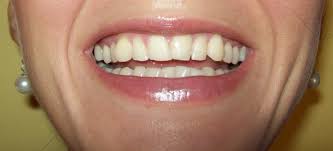Teeth problems.
Diseases related to the teeth are different and affect almost all of the people. Going to the dentist regularly and follow a careful oral hygiene every day allows us to control the onset of these diseases and to treat them as soon as possible.
Each person is more or less susceptible to dental disease, but in general, they mainly depend on oral hygiene and nutrition. Doctors recommend brushing teeth at least twice a day and flossing once. Also, it is preferable to follow a varied diet that includes fruits and vegetables, and avoid sugary foods and drinks.
Excessive consumption of sugar and poor oral hygiene are in fact the basis of most dental diseases.
The most common dental problem is a toothache. A toothache can have various causes, first of all, tooth decay that is caused by the erosion of tooth enamel by acids that are produced in the mouth.
Acids are produced by bacteria that feed on the sugars consumed by a person. When bacteria proliferate they begin to corrode the enamel until a hole is created on a tooth. This erosion may reach the dentin to the pulp, causing infections, abscesses, even up to tooth loss.
The accumulation of plaque and poor oral hygiene are also the sources of another type of diseases, those that affect the gums.
Gum disease.
The first stage of gum disease is called gingivitis, which is the only stage that is reversible. If not treated, gingivitis may lead to a more serious, dangerous form of gum disease, called periodontitis.
Periodontitis can also cause tooth loss, and because gum diseases may have no warning signs, regular dental checkups and periodontal examinations are vital.
Other conditions of the mouth that may be related to dental diseases are, for example, bad breath. Halitosis is a very widespread condition; is it depends on gum disease, cavities, oral cancer, dry mouth and bacteria on the tongue, whether it is chronic halitosis can be solved by consulting the dentist.
Sensitivity is another common state; sensitive teeth can have several reasons, including cavities, fractured teeth, worn fillings, gum disease, exposed tooth root.
Tooth diseases.
Dry mouth also is a condition not to be underestimated and to bring to the attention of the dentist. Dry mouth can be very harmful to the teeth because saliva has a disinfectant effect, and its lack can cause an increase in tooth decay.
Finally, there are several types of mouth ulcers, which usually disappear on their own within one to two weeks. If the ulcer lasts more you have to make it look a dentist.
Ulcers are mouth sores, fever blisters, cold sores, thrush.





